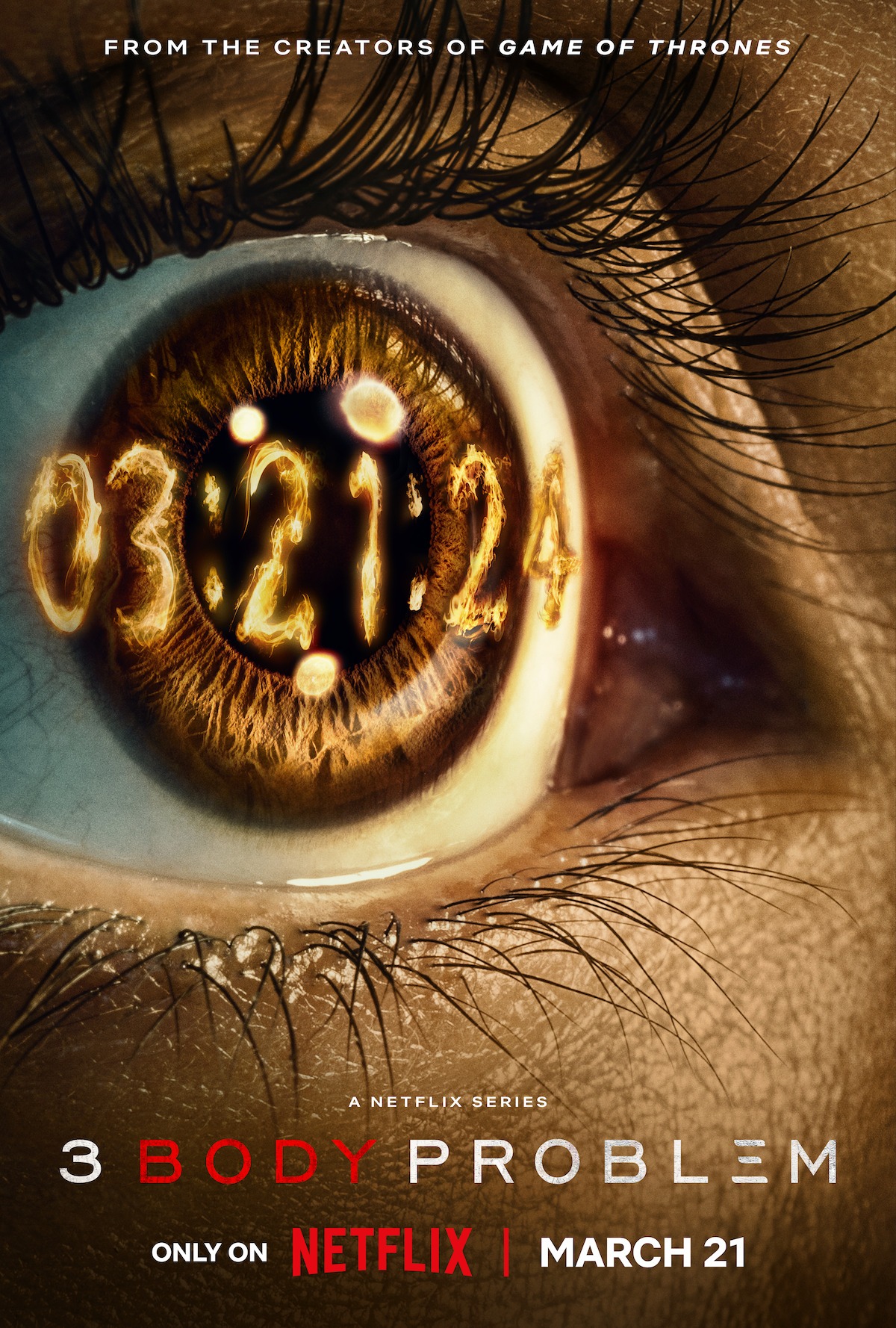On March 21, Netflix released all eight episodes of its highly anticipated show “3 Body Problem,” based on the Nebula Award-nominated and Hugo Award-winning book of the same name and its subsequent trilogy, “Remembrance of Earth’s Past,” by Chinese author Liu Cixin. The Netflix show was created by famous TV show writers David Benioff and D. B. Weiss from the popular show “Game of Thrones,” in partnership with Alexander Woo.
In the original novel, “The Three-Body Problem,” the story is split into two parts—the first following Ye Wenjie, an astrophysicist working on the covert military initiative Red Coast during the Chinese Cultural Revolution, and the second following nanotechnology professor Wang Miao and detective Qiang Shi (nicknamed “Da Shi”) as they investigate the murders of renowned scientists around the world and their ties to an organization called “ETO” in the 2000s.
Earlier last year, Tencent, one of China’s largest media companies, released their live action series following the first novel. The series, titled “Three-Body,” was 30 episodes long and faithful to the novel to a fault, making it feel incredibly drawn out. However, despite this major flaw, there were still many aspects of the show that I appreciated and felt redeemed its atrocious pacing. One of them is the fact that it built suspense for those who haven’t yet read the novel, creating a mystery out of the work Ye Wenjie was tasked with in Red Coast and the threat of what was awaiting the world.
The Netflix adaptation took a totally different approach than Tencent’s version. First, they rearranged the timeline, allowing for all characters in the trilogy—even characters who don’t show up until the second and third books—to live during the same period. This was an interesting choice since books one and two are set centuries apart from book three. Because of this change, it is honestly difficult to compare the series to its source material. Second, Netflix also rewrote many of the characters. One of the biggest changes included splitting Wang Miao into two different female characters, Cheng Xin and Augustina “Auggie” Salazar, played by Eiza González and Jess Hong, respectively.
Personally, I think it was admirable that Netflix wanted to change the cast to make it more diverse, and in theory this would have reflected the international scope of the series. However, this change was not justified by its execution, and fell flat because the rewriting of all the characters made the story seem to take place amongst a group of friends. Moreover, Netflix’s choice to race-swap the most exciting characters in the series was definitely interesting, to say the least.
Hollywood already suffers from a lack of Asian male representation. The Oxford Five, the Netflix adaptation’s main protagonists, did not contain an Asian male despite their novel counterparts all being Chinese and mostly male. And it begs the question: Why? Why this erasure of Asian male protagonists? It’s not like current American media is saturated with Asian male protagonists. In fact, it’s quite the opposite. It seems, dare I say it, Sinophobic to change the race of some of the most beloved characters in the series while keeping the villain (Ye Wenjie), the foil (Cheng Xin) and the comedic relief (Da Shi) as the only Chinese characters in the Netflix adaptation. Even then, most of Da Shi’s personality was removed, leaving only a shell of his original endearing character. Furthermore, the random decision to make Ye Wenjie be in a relationship with Mike Evans was uncalled for. Their relationship contributed nothing to the story. Instead, it just reinforced the common trope of Asian female-White male relationships that is already so prevalent in Hollywood.
Another one of my biggest gripes is that despite all the removal of Chinese culture which heavily influenced the story, the one major part the adaptation kept and specifically advertised was its uncensored scenes of the Chinese Cultural Revolution. Ye Wenjie’s experiences with struggle sessions and reeducation camps were the basis for her cynical views of humanity, ultimately leading to her decision made in the Red Coast. However, Netflix’s adaptation just seemed to use Ye Wenjie as a stepping stone to further the story and get to the more “dramatic” moments of the series. In fact, even though the Tencent version toned down some of these scenes due to censorship, it was still better able to capture the hardships Ye Wenjie faced and her complexity without having the explicit violence—something Western media can learn from. Both the young and older versions of Ye Wenjie played by Wang Ziwen and Chen Jin in the Tencent series were well-written and phenomenally acted—inciting compassion for an otherwise detested character. In comparison, the writing of Netflix’s adaptation made Ye Wenjie just seem like a naive, senile cult leader.
At the story’s core, “The Three-Body Problem” is not just a book about science fiction and interesting theories about the universe—it is also a commentary on humanity. And I think that the biggest flaw in the Netflix adaptation is that it forgets to add depth to its characters. The creators seemed more focused on the drama and action scenes from the source material that they forgot to include its complex depictions of human nature.
Despite all my critiques, the story is still a compelling one. But I think there is a paradox to enjoying the Netflix series. If you want to better understand the science and nuance behind the thought-provoking story, you should first read the books, but if you want to enjoy the show without constantly comparing its inaccuracies to the novels, you need to watch it without any expectations.



